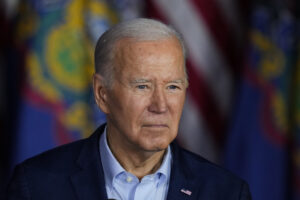At Home in Exile, an Ode to the Richness of Jewish Diaspora Life
In his new book, Alan Wolfe presents his view that Jewish universalism is rooted in "the passion for justice that so moved the Hebrew prophets." Beacon Press
Beacon Press
Beacon Press
|
To see long excerpts from “At Home in Exile” at Google Books, click here. |
“At Home in Exile: Why Diaspora Is Good for the Jews” A book by Alan Wolfe
“It is time for the Diaspora to have its due.” So proclaims Alan Wolfe in his new book, “At Home in Exile: Why Diaspora Is Good for the Jews.” Wolfe, the author of “The Transformation of American Religion” and other works, serves as director of the Boisi Center for Religion and American Public Life at Boston College. His latest book is a learned, loving ode to the richness and sustainability of Jewish Diaspora life even in this day and age of a Jewish state, though it remains vague on how to deal with divergences of opinion between liberal Jews and an increasingly right-wing Israel.
Wolfe understands Jewish universalism as a worldview rooted in “the passion for justice that so moved the Hebrew prophets.” This passion can coexist with particularism, or a concern with one’s own kind, so long as the latter isn’t overriding. Wolfe does well to recognize this nuance in his perceptive and multilayered discussion of (departed) thinkers whose previously influential universalism he wishes to highlight, including historian and Jewish autonomist Simon Dubnow, cultural Zionist Ahad Ha’am (Asher Ginsberg), Reform Rabbi Stephen Wise, and Hebraist and historian Simon Rawidowicz.
On the subject of Jews’ continued dispersion, the author observes, “Dubnow’s prediction that the Diaspora would always be an essential part of Jewish life has proven more accurate than the Zionist hope that a Jewish state would render the Diaspora irrelevant.” Wolfe criticizes those who engage in “Diaspora negation,” or argue that Diaspora Jewry (just over half the world’s total) should play second fiddle to Israel. But for the Diaspora and Israel to remain, in Rawidowicz’s words, “two that are one,” Wolfe maintains that American Jews in particular must recultivate a “capacious” and universalistic understanding of Jewish values and identity, while simultaneously asserting themselves as Israel’s “equal partners,” not its “cheerleaders.”
The author traces the decline of universalism in American Jewish socio-political life to several factors: the Holocaust, Israel’s creation, the Six-Day War, the rise of black nationalism, the struggle over Soviet Jews’ right to emigrate, fears over Jewish communal continuity in the face of rising assimilation in the U.S., and even the Skokie affair of the late 1970s, when the miniscule American Nazi party’s provocative plans to march through a Chicago suburb, one home to many Holocaust survivors, understandably outraged Jews across the country. Echoing Peter Beinart (in his book “The Crisis of Zionism”), Wolfe laments the insular orientation assumed by the major American Jewish organizations in response to such events, and also bemoans their deference to Israel come what may. In a separate, standout chapter, he draws attention to a host of nonestablishment Jewish groups in the U.S. and Europe swimming against this current, and thereby reinforcing his hope that “the lost universalism that has been so much a part of Jewish tradition may well be prepared for a comeback.”
Of course, talk of universalism and the Jewish prophetic tradition can sound woolly, especially with regard to politics — in this case, Israel’s. Looming large over Wolfe’s spirited defense of the Diaspora is Israel’s growing national chauvinism and its worsening treatment of Palestinians, those who remain stateless in the occupied West Bank and blockaded Gaza Strip as well as those who make up 20 percent of Israel’s own population, either as Israeli citizens or East Jerusalem residents. The author seems to endorse the argument that Israel’s policies toward the Palestinians endanger its future, and that concerned Jews must take notice: “[S]hould the Jewish state be taking steps that undermine its viability, as many believe to be happening in this era of illegal settlements and right-wing intransigence, the best thing Jews can do to further the survival of the Jewish state is to remain outside Israel and keep the tradition of diasporic universalism as vibrant as possible.”
Wolfe, who prefers two states (as opposed to a single binational one) as the solution to the Israeli-Palestinian conflict, isn’t suggesting that Diaspora Jews ditch Israel. Rather, he wants them to pressure the Jewish state to become more humane toward the Palestinians, less imperious vis-à-vis the Diaspora, and receptive to world opinion. Although he and fellow members of the group Scholars for Israel and Palestine/The Third Narrative (which opposes the Boycott, Divestment and Sanctions Movement against Israel as too broad in scope) recently urged the U.S. and the EU to impose sanctions on four right-wing Israeli political figures for their annexationist actions in the West Bank, he refrains from calling for similar concrete moves in his book.
Even when citing other liberal Jews’ proposals, as with Beinart’s call to boycott settlement goods while reaffirming the legitimacy of Israel as a state within the pre-1967 borders, the ever-cautious Wolfe refrains from divulging his own position. The closest he comes to indicating what tangible acts he believes should accompany admonishing Israel to change is this statement: “Although negation of the Diaspora retained its popularity from the early Zionist pioneers down to contemporary intellectuals such as A.B. Yehoshua, Israel has always depended on Jews living abroad for money and political support. All the more reason, then, that Diaspora Jews who care for Israel’s future offer universalism instead.”
Is Wolfe saying that Diaspora Jews should withhold political and financial support from Israel until it heeds their exhortations? It seems so, but he doesn’t elaborate. His studied reticence regarding this urgent matter (a two-state solution is fast becoming impracticable) undermines an otherwise stellar book. “At Home in Exile” makes a compelling case for the continued relevance of a Diaspora that historical anti-Semitism failed to annihilate and a contemporary Jewish state has not quite managed to supersede. And the author’s suggestion that liberal Jews, with their universal ethos and “sympathy for the underdog,” should oblige Israel to give the Palestinians their due, not just for the Palestinians’ sake but for Israel’s, is a sound proposition. His failure to follow through and explain how they might achieve this objective proves a major disappointment.
Rayyan Al-Shawaf is a writer and book critic in Beirut.
Your support matters…Independent journalism is under threat and overshadowed by heavily funded mainstream media.
You can help level the playing field. Become a member.
Your tax-deductible contribution keeps us digging beneath the headlines to give you thought-provoking, investigative reporting and analysis that unearths what's really happening- without compromise.
Give today to support our courageous, independent journalists.






You need to be a supporter to comment.
There are currently no responses to this article.
Be the first to respond.